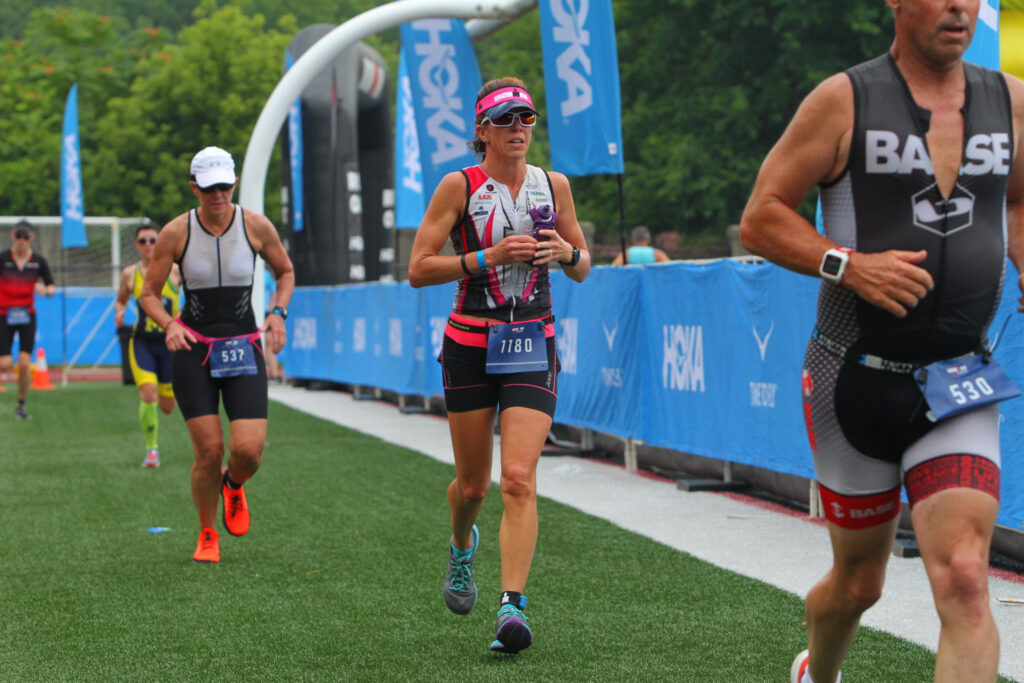Developing and testing hypotheses

While I did well in science classes as a kid and teenager, I was never going to be the next Bill Nye. Looking back, I didn’t enjoy establishing a theory or hypothesis as to why something happened and how the outcome would change if I tweaked one little thing. Why couldn’t it just work the way I wanted immediately?! All those experiments seemed so time-consuming and cumbersome. I wanted instant gratification!
Now decades later in preparation for my upcoming IRONMAN, I find myself donning a white lab coat yet again. With the training that leads up to and the effort required during an event like IRONMAN, I need to know what works for me now and what is most likely to net me a successful outcome on race day. It’s important to have the right fueling and hydration, gear, and accessories for the conditions on the course on that future date. With a 3-discipline event and nearly an entire day of racing, there are hundreds of variables to consider and evaluate.
Race conditions in October in Hawaii are likely to be in the high 80s / low 90s. Add in the lava fields and solar energy lab I’ll ride and run through and there will be sections of the course that top 100 degrees. Having trained and raced in Michigan for so many years, I have often struggled with hot races. However, since learning of my Kona qualification, my coach and I have entered our imaginary laboratory to experiment with things I can control. She has also encouraged me to do as much of my training in heat and humidity as I can given our bodies can acclimate to the heat.
Over the past several weeks, I’ve played around with more bottles of hydration per hour on both the bike and the run, I’ve mixed my formula at differing levels of potency, I’ve consumed more and less substantial foods on the bike, I’ve ingested salt to increase the likelihood I retain fluid longer and I’ve ridden my bike for HOURS in a natatorium, topping out at 98% humidity. Some of these tests were painful, resulting in a very burp-laden run, some left me drained and walking by the time I got out on the run, and, thankfully, some have worked better than others.
I feel as though I’m narrowing in on the right mix of resources, which will help me to be as prepared as possible for what I will encounter on race day and, hopefully will help me to problem-solve real-time when faced with challenges. Could I have just stuck to what has worked for me in the past and finished? Maybe, but I know this event, with its harsh racing climate, is bound to be more challenging than any I’ve done before, and I want to feel as though I’ve armed myself as best I can. Only testing a series of hypotheses in a similar environment can give me that answer…and so we will continue to conduct the research!
While Sky Foundation does not conduct research, they fund much needed research into the early detection and treatment of the disease. Once pancreatic cancer is diagnosed, it is often too late to perform surgery to remove the tumor. This is generally because it has already metastasized to the stomach and/or the liver. And to date, oncologists have not found the “perfect” combination of drugs to kill off the cancer repeatedly in patients. There are, of course, hypotheses that researchers are evaluating and testing and many of these are showing promise!
Unfortunately, though, pancreatic cancer does not receive a lot of research funding when compared to other cancers. According to the National Cancer Institute, in 2018 (the most currently published data) only about 5% of their research funds went to the study of pancreatic cancer. For a disease with such low 5-year survival rates, I find this disheartening. And is why I absolutely love that Sky Foundation offers seed grants to researchers each year. These seed grants allow a researcher to test a hypothesis before requesting substantial research dollars from organizations like the National Cancer Institute, as they often want an indication the hypothesis has already been tested to some degree and is showing potential.
Sky Foundation awards grants to, at minimum, both a tenured and non-tenured researcher and, for the past several years, has awarded at least a third grant. We have funded research across the US, including researchers from Henry Ford Health, Harvard University, MD Andersen, amongst others. Some of these researchers have gone on to receive multi-million-dollar grants from the National Cancer Institute.
Of course, the more donations Sky receives the more researchers we can fund – please consider a donation to help advance the research into pancreatic cancer. The more hypotheses tested, the greater the likelihood of finding both an early detection method and a successful treatment protocol. This research is how we can increase early detection and improve survival rates.

Students for life! I love all the science experiments going on in your training and I love the Sky Foundation’s mission!
Me too Melanie!